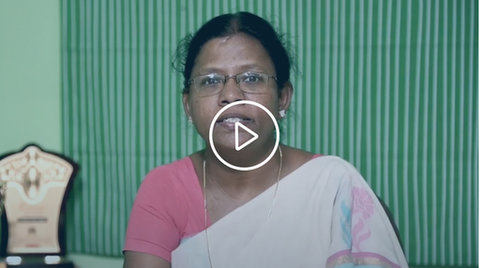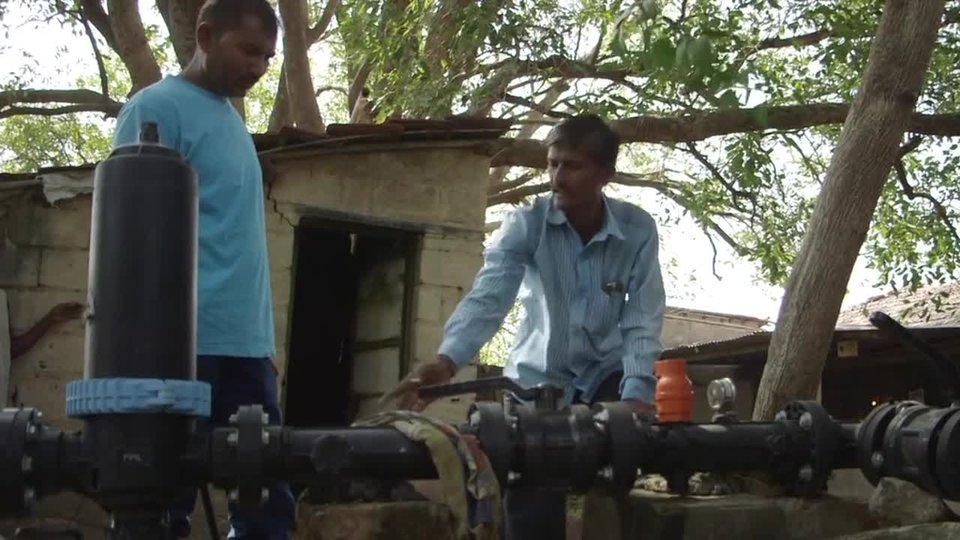Driving
Impact
Driving
Impact
When a partner organisation is strong, diverse and focused on learning, it is able to deliver greater impact. That’s why we work side by side with partners, offering core support and enabling collaboration.
Read more
We conduct external evaluations and surveys – which are available on Laudes Foundation's website – with the power to bring external perspectives to highlight what we are doing well, areas for improvement, and where we can apply pressure to achieve greater impact.
Driving Impact
Strengthening Organisations
Providing unrestricted, or core funding, together with bespoke operational assistance, is an important strategic priority, because stronger partner organisations are necessary to create positive systems change.
Reflecting this commitment, the share of core support grants made by Laudes Foundation increased by 28% between 2020 and 2021.
Core Support provided
% of total funding
2021
38.5%
2020
29.0%
Repórter Brasil
Providing emergency support to a human rights organisation under attack
Brazilian NGO Repórter Brasil investigates human rights violations and threats to the environment by mapping and tracking the supply chains of the largest economic sectors.
In recent years, facing increased political polarisation and a divisive national government, it became challenging for the organisation to continue its work. Hackers took down Repórter Brasil’s website and demanded the organisation delete some of its reporting, while individuals attempted to invade its office space.
Laudes Foundation partnered with Repórter Brasil, offering unrestricted funding that allowed the organisation to move to a secure office location with strict access control, increase the size of its team, and enhance its IT security.
Laudes Foundation offered the support of Kamara Strategies, which provides security risk management for human rights defenders. Kamara Strategies assessed Repórter Brasil’s digital security and helped it implement improvements. Team members from Kamara also visited Brazil in March 2021, at the height of the pandemic, and worked closely with Repórter Brasil on all aspects of security management at its new office.
Covid-19
Our emergency response
When the Covid-19 crisis hit, Laudes Foundation moved quickly to ensure our partners could cover basic operating expenses, as well as providing support to the communities they serve. To build partner resilience, our Covid-19 emergency response offered partners in need with additional funding, grant flexibility and non-financial technical support.
Over the course of 2020 and 2021, we provided EUR 4 million of funding and leveraged EUR 8 million of additional funding. The emergency response reached 61 partners – mostly across Asia and Brazil – assisting more than 500,000 people.
To drive improvement and identify key lessons, Laudes Foundation commissioned an external evaluation in 2021 that analysed our approach. Watch the video and read the full evaluation to learn more.

Lessons from the Laudes Foundation Covid-19 Emergency Response
Driving Impact
Building
Collaboration
The landscape of organisations working to address the dual crises of climate change and inequality across our focus industries is a complex one.
Laudes Foundation convenes experts and practitioners and facilitates dialogue to create a shared vision, commitment to change, and pathway to action. In 2021, we supported more than 30 membership bodies and multistakeholder initiatives, and hosted multisector gatherings to drive meaningful partnerships and collaboration.
Pre-COP26 Finance Forum
Galvanising finance and philanthropy for net-zero
Before the 26th UN Climate Change Conference of the Parties (COP26) in Glasgow, Laudes Foundation, Quadrature Climate Foundation and The Children’s Investment Fund Foundation convened a climate finance forum at Glen House in Scotland. More than 50 leaders from philanthropy, the public and private sectors, law, civil society and academia gathered to activate the climate finance community to deliver the net-zero commitments necessary to meet the Paris Agreement and keep the global temperature increase below 1.5°C.
The collective challenge was clear: the capital is available to decarbonise global systems but needs to be deployed at an unprecedented scale and speed. While private finance is stepping up by making ambitious net-zero commitments, broader and experienced stakeholder collaboration is required to ensure private sector commitments translate to prompt, systemic change.
“Tackling the climate emergency requires broad stakeholder collaboration and the sharing of knowledge, ideas and best practice. The gathering of climate finance practitioners and funders at Glen House offered a unique opportunity for the type of candid, in-depth conversations among experts that are needed to genuinely tackle the challenges and barriers to accelerating investment into decarbonising the economy.”
Dr Rhian-Mari Thomas, Chief Executive, Green Finance Institute
"Glen brought into focus the vital role philanthropy plays in convening disparate stakeholders around a specific issue. Specifically, the gathering highlighted the need to align capital flows with the policy asks, as well as the critical technical assistance that makes structuring investments into climate solutions possible and profitable."
Lawrence Brenninkmeijer, Chair of the Board, Laudes Foundation
At Glen House we identified six areas where climate finance and philanthropic collaboration could accelerate decarbonisation in a manner that preserves and protects social equity.
Laudes Foundation continues to support this community and its collective action.
Effective collaboration
Lessons learned
Laudes Foundation recognises collaboration takes time and is not sufficient to create systemic change on its own. Contributing towards change in a complex, interconnected industry such as the fashion supply chain needs to be sustained over the long term by industry buy-in and policy change. In 2021, we assessed what works and doesn’t work in long-standing multistakeholder collaboration initiatives:
Organic Cotton Accelerator
Launched in 2015, OCA is a multistakeholder initiative with a goal to unleash the potential of organic cotton for farmers, brands and the planet. The number of farmers joining its programme grew by 180% in 2021, to more than 22,000 farmers. Those who joined, earned 21% more, on average, in net profit from their cotton (per hectare) than their non-organic peers. An external evaluation showed success is driven by partner brands paying farmers a premium for organic cotton, although this has only just been achieved after many years of discussion. The challenge to drive systems change across the organic cotton market will be to maintain the premium pricing alongside other supportive factors, so the business model is sustainable over the long term.

Make fashion Circular
Make Fashion Circular, from the Ellen MacArthur Foundation, brings fashion industry leaders together with policymakers, philanthropists, NGOs and innovators. It works to create a circular economy to stop waste and pollution in fashion. It has also inspired fashion companies to outline long-term solutions that will lead to a circular economy and encouraged many businesses to adopt climate-positive practices. At the same time, more can be done to focus on changing the policy and regulatory environment to the extent required for businesses to implement their commitments at scale.
Both examples show that broad collaboration takes many years to deliver change, and more sustained action is required. Read the external evaluations to learn more.
Driving Impact
Measuring systemic change
To achieve the impact we envision in Laudes Foundation’s Theory of Change, we must first understand the current status of our efforts to tackle climate change and inequality in the fashion, built environment and finance and capital markets iindustries.
In conjunction with Future Impacts and 4CF, Laudes Foundation launched a systems baseline assessment outlining the challenges in these industries.
Baseline report
Creating the methodology
The systems baseline assessment resulted from a review of more than 50 papers and articles and three real-time Delphi surveys. Its initial results were refined during an expert workshop and interviews with 27 practitioners from philanthropy, and the built environment and fashion industries, and finance and capital markets sector.
The systems baseline assessment shows the outcomes and impacts of our interventions within these industries.
Baseline report
Understanding the results
Despite some positive signals of change, the assessment found that the overall status of the system is ‘unconducive’, because of the slow pace at which finance, fashion and the built environment are mitigating their negative impacts. As the report notes, “the situation is still barely survivable, causing stress and other environmental and health problems, as progress remains too slow and systemic issues persist.”
“Globally things are heading in the right direction, but progress is too slow. More should be done to accelerate progress.”
Industry expert, Delphi survey
With less than 2% of philanthropic funding dedicated to addressing climate change in 2020, and programmes, on average, lasting less than a year, the assessment also underscores the need for philanthropic foundations to increase funding into climate action, and support longer-term programmes.
The systems baseline assessment will help guide Laudes Foundation’s strategic actions and inform how we monitor and evaluate our work, providing a reference point for impact assessment.
Insights by industry/sector
Finance and Capital Markets
Read the insights
Fashion
Read the insights
Built Environment
Read the insights
Insights by Industry
Fashion
Social and environmental transparency and accountability need to be prioritised.
Key Evidence
- There are no equity and inclusion-related obligations and sanctions imposed, although some businesses have started to make progress.
- Current regulations lack the scale required to challenge the linear ‘take, make, waste’ model across supply chains to support circular fashion.
- The policy and regulatory environment for fashion still prioritises shareholder value over sustainability goals.
What's needed
- Increase pressure on transparency and disclosure on social and environmental performance.
- Strengthen legislation on labour rights and fashion materials to force accountability.
- Introduce higher taxes on fashion produced using non-circular processes.
Insights by Industry
Finance and Capital Markets
“An industry still pouring more money into fossil fuel investments than renewables, circular economy and other climate mitigation businesses”
Key Evidence
- Voluntary standards and reporting have not produced significant shifts in the finance industry, and have resulted in greenwashing and impact-washing.
- The diversity of metrics and methodologies used, coupled with an incomplete understanding of risk, hinders accountability and effective analysis of environmental and social performance.
- The financial markets have yet to channel sufficient capital to enable rapid decarbonisation.
What’s needed
- Mandatory standards and principles to address the limitations in voluntary action, with clear penalties and incentives.
- Standardisation of metrics (drawing on qualitative and quantitative evidence) used to assess environmental and social performance and inform action.
Insights by Industry
Built Environment
Focus is on quick-fixes, rather than engaging with solving built environment challenges at scale.
Key Evidence
- Voluntary standards and certification systems have been the norm across the built environment with limited success and strong regulation has been lacking.
- Financing gaps hamper decarbonisation and energy efficiency efforts across the built environment where renovation actions are misaligned with 2050 net zero ambitions.
- Fragmented and complex supply chains in the built environment challenges attempts to instil accountability and responsibility on environmental and social issues.
What's needed
- Concerted push for robust regulation with sanctions and incentives across industry to compel positive environmental and social change.
- Advocacy for equity and inclusion alongside and linked to climate action.
Effective collaboration
External Evaluations
Alliances
Collaborative networks of mission-aligned organisations (often including a grantmaking facility) supported by Laudes Foundation
- Alliance for Corporate Transparency
- Aligned Funders on International Energy (ALFIE)
- Carbon Neutral Cities Alliance (CNCA)
- Cool Farm Alliance
- Economic Paradigms Funder Group
- EDGE Funders Alliance
- European Coalition for Corporate Justice
- Funder Forum on Oil and Gas (FFOG)
- Funders for a Just Economy
- Funders Organized for Rights in the Global Economy (FORGE)
- ISEAL Alliance
- Policy Hub
- Partners for a New Economy
- Philanthropy Coalition for Climate
Rede Liberdade
- Tamil Nadu Alliance
Multi-stakeholder initiatives
Frameworks for engagement among business, finance, civil society and government supported by Laudes Foundation
- Better Cotton Initiative
- Beyond Oil & Gas Alliance (BOGA)
- Built by Nature
- Cotton2040
Ethical Trading Initiative
- Fashion for Good
- Organic Cotton Accelerator
- Organic and Fairtrade Cotton Secretariat
- Sustainable Fashion Lab
- World Green Building Council
- Zero Discharge of Hazardous Chemicals
Memberships
Philanthropy and policy focussed organisations and think tanks that enable Laudes Foundation to exchange learning and deepen our practices
- Ariadne - European Funders for Social Change and Human Rights
- Aspen Network of Development Entrepreneurs (ANDE)
- Bruegel
- Centre for Effective Philanthropy
- Confluence Philanthropy
- Economic Paradigm Funders Group
- Environmental Funders Network
- European Venture Philanthropy Association
- Funder Safeguarding Collaborative
- Grupo de Institutos e Fundacoes – GIFE
- Lab for Learning
- Living Futures Institute
- PEAK Grantmaking
- Philanthropy Europe Association - Philea
- SwissFoundations
- WINGS


Share